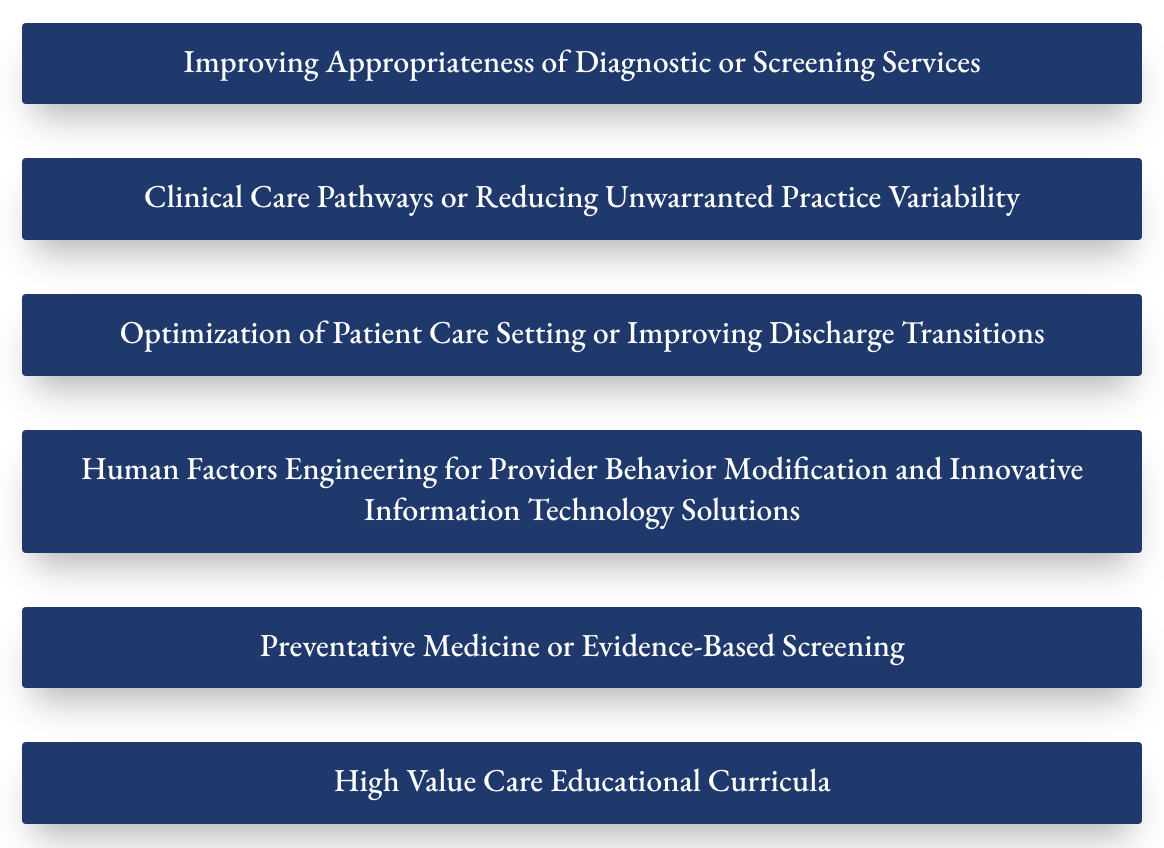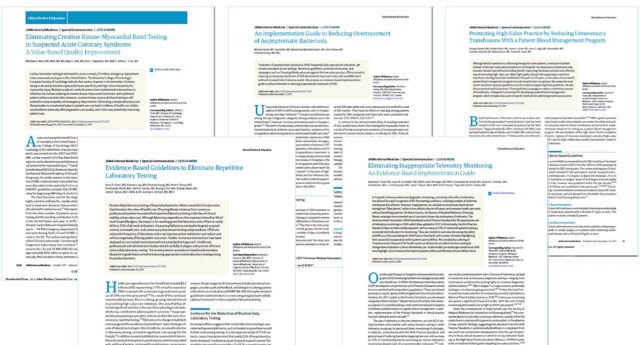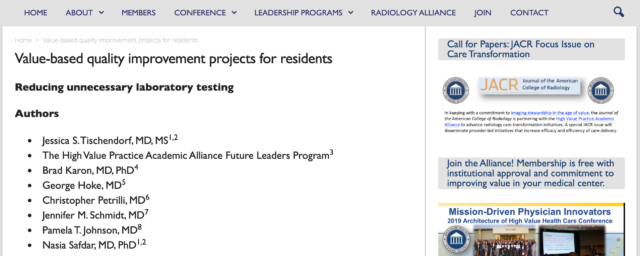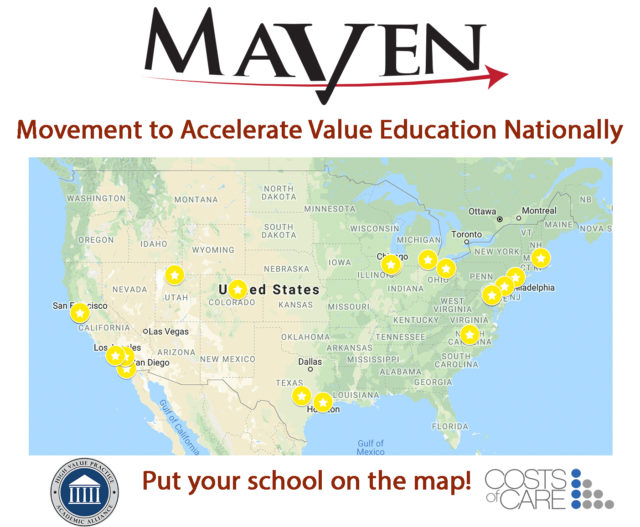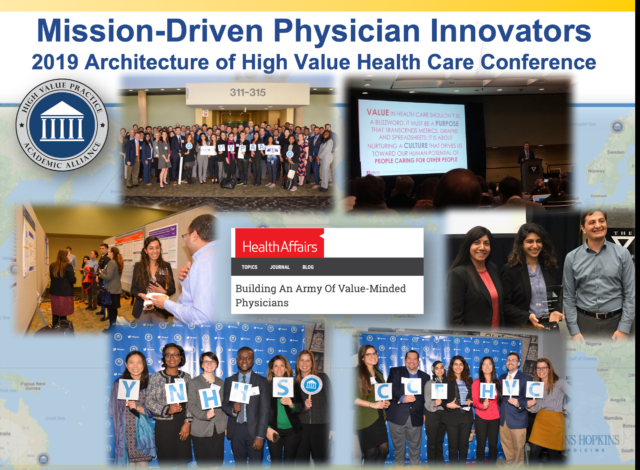From the 2019 HVPAA National Conference
Dr. Byron Crowe (University of Colorado), Dr. Ariella Pratzer (New York University), Dr. Jaden Kohn (Johns Hopkins University), Dr. Emily Bartlett (University of Washington), Dr. Mateo Eckstat (Boston Medical Center), Dr. Nicholas Meo (University of Washington)
Background
Clinician interest and engagement in quality, safety and high-value care initiatives continues to expand, and there is growing need to create a robust pipeline of trainees with skills in leading health system improvement projects and driving high-value care initiatives. However, residency remains a challenging time to gain skills and practical experience in these areas, and trainees have historically lacked formal structures and communities to engage in this work. To address this need, Housestaff Councils on Quality, Safety and Value have emerged organically at institutions across the country. These councils provide interested trainees with local communities that partner with institutional leadership, conduct improvement projects, imbue trainees with core skills in health systems science and create lasting professional networks, all of which add tremendous value to our healthcare system and the quality/value pipeline. Despite the continued growth in both number and scope of these councils, for many years they have remained relatively isolated groups with only local reach and little communication between peers at other institutions.
Objective
The Housestaff Council Consortium (HCC) is a new national organization that unites housestaff councils from across the United States to share best practices, run collaborative projects and strengthen professional networks among residents and faculty with an interest in quality and high-value care.
Methods
Founded in September 2018 under sponsorship from the High Value Practice Academic Alliance, HCC is organized around four divisions – Development, Best Practices, Engagement and Collaboratives – with each division led by a resident and supported by faculty advisors. The work of each division is driven by a collaborative goal-setting process designed to strengthen the capabilities of existing member councils while creating an infrastructure for starting and growing councils in the future.
Results
In Year 1, the HCC has built the first national network of housestaff council leadership and now includes member institutions from high-performing housestaff councils across the country including Colorado, Duke, Johns Hopkins, OHSU, NYU, UTMB, Washington and Yale.
The council is currently deploying several major initiatives to strengthen the scope and reach of member councils. Initiatives include creating a collection of Housestaff Council Profiles to highlight and share best practices, organizing the first national multi-site housestaff council high-value care initiative, creating a comprehensive database of national housestaff council leadership and hosting Executive Roundtables at member institutions to strengthen ties locally between councils and senior health system leadership.
Conclusions
The Housestaff Council Consortium has grown rapidly and is positioned to contribute to the development of the national quality and value pipeline by expanding the capabilities and capacity of housestaff councils across the nation. Our progress in year 1 demonstrates that there is broad interest in expanding the role of these organizations at existing sites and scaling the model to other institutions, and our structure provides a viable framework for scaling the organization in year 2 and beyond.
Clinical Implications
By organizing housestaff councils on quality, safety and value, HCC can accelerate efforts to expand knowledge and skills in value-based care delivery while creating lasting networks of like-minded clinicians working to improve the U.S. healthcare system. There is broad potential to expand the capacity and sophistication of these councils to improve care locally while increasing the spread of value-based care initiatives across member sites with support from a national organizing body.
